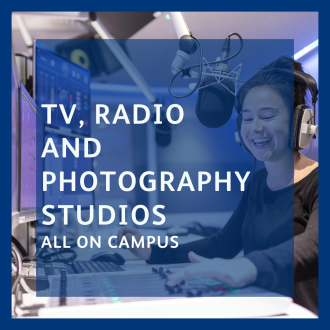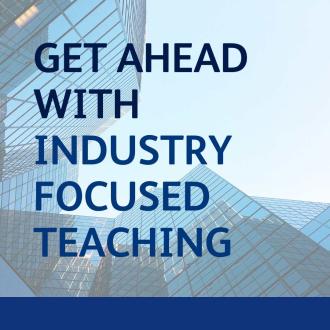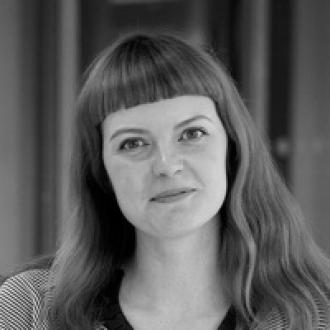- Undergraduate
Media and Communications BA (Hons)
Overview
Why study at the University of West London?
- Our media course was ranked #1 in London for overall student satisfaction in this year's NSS
- UWL is the top London modern university for Communication and Media Studies, Complete University Guide 2024
- Ranked 30th university in the UK - The Guardian University Guide 2025
- Number 1 London university for overall student satisfaction - National Student Survey 2024**
- Best university for Student Experience and Teaching Quality in the UK - The Times and Sunday Times Good University Guide 2024
Our Media and Communications degree is a dynamic and constantly evolving course that will suit anyone interested in being part of the creative industries.
You can choose from a broad range of subjects, and cater to your particular interests – and whatever you focus on, we’ll give you practical industry-standard skills, underpinned by critical knowledge and creativity.
Come and study with us on a course that allows you to choose your own specialisation from a diverse range of options, all taught by experts in their fields. Develop your thinking and making skills and graduate with an incredibly versatile set of attributes - ready for a wide range of jobs in the media.
On this course, you will cover areas such as:
- video & audio production, advanced production
- ethical and philosophical media debates
- advertising, documentaries, social media
- audiovisual essays and writing/presenting
- screenwriting and multimedia content
- live radio and TV production
- media theories of AI, fake news, technology
- experimental sound and graphics
- creative entrepreneurship and industry placements.
If you’re interested in making, thinking about, producing, analysing, adapting, writing, watching and discussing media then this course is for you! Come to an open day to see our modern facilities and chat with our course team of specialist researchers and experienced practitioners.
See what our current students are producing by following them on Facebook, Twitter, YouTube, Mixcloud and Instagram.

Select your desired study option, then pick a start date to see relevant course information:
Start date:
If your desired start date is not available, try selecting a different study option.
Why study Media and Communications with us?


What our students say…
Work experience was extremely beneficial in giving me invaluable experience outside of a classroom environment. You can read all the text books you want, but nothing substitutes for actually learning first hand.




Course detail & modules
The curriculum is organised around unifying blocks. In each semester you can focus on developing your craft and critical skills on a specific theme/format, without feeling dispersed among many unrelated assessments.
The course features two customisable pathways - halfway through your studies, you have the opportunity to choose either the Media Production strand or the Media Studies strand.
Real industry work experience is guaranteed. Whatever the pathway you choose, there is a minimum of 40 hours of industry work placement, facilitated by the school's Placements team.
To ensure a top-notch learning experience, you have access to industry-standard studios, facilities and equipment (that you can book out!) to develop your projects.
You can learn from a diverse group of established media practitioners and researchers in the field of Media and Communications. Take advantage of their practical and theoretical knowledge and professional links in the UK and abroad.
On top of all this, the University of West London is a great place to study. Our campus is located in the heart of London’s media centre, close to two tube stations in the beautiful borough of Ealing.
Compulsory modules
Media and Communications: Theories and Debates
In this module you will be introduced to the key theories, concepts and debates about the relationships between media forms, institutions and audiences. Some of the key themes covered in the module include representation, institutions, audiences and effects. The media forms studied will be drawn from film, broadcasting, photography, advertising, the internet and the printed press.
Video Documentary Production
This is an intensely practical module, which lays the foundation for video work later in L4, and in modules at L5 and L6, as well as for future employability. You will learn the basics of filming, including camera operation, lighting, and recording sound. You will also learn the basics of editing, including sound mixing for video, structuring and scripting, and how to research stories for video.
Introduction to Media Ethics
This module is an introduction to the field of media ethics and its repercussion in terms of policies and laws. You will critically analyse and participate on a range of historical and topical debates in the areas of policy and ethics in the field of media and communications, such as ‘freedom of speech’, ‘fake news’, ‘the role of the state’, ‘civil society’ and ‘digital citizenship’.
Video Production
Learn the basics of video production and film grammar, developing your skills as a filmmaker. Using hands-on exercises, you will learn photography, video, lighting, sound and scriptwriting.
Live Radio Production
This practical module will provide a foundation of live radio production skills. The module will take you through a range of radio aspects that are both behind the mic and production focused.
Podcasting
Dive into the world of audio production and storytelling through podcasts. Enhance your voiceover skills, audio recording, sound design and web design/publishing skills.
During Year 2, you will complete the listed compulsory modules and one optional module.
Additionally, you will choose ONE course pathway - either Media Production OR Media Studies - to follow until the end of the course.
Each pathway contains two compulsory modules and a choice of one optional module. See below for more information.
Compulsory modules
Industry Experience
The aims of this module is to provide you with the opportunity to:
• identify potential professional opportunities and goals
• develop the skills and personal networks to make effective applications
• develop a real-life understanding of contemporary industry/organisational practice
• identify core competencies to support your future career
• cultivate a critical understanding of your strengths and weaknesses in a work-based situation
• develop your online professional presence and add elements to your portfolio of practical work (while refreshing key production skills).
Integrated Marketing Campaigns
Media Production Pathway - Year 2
You will complete the following compulsory modules:
- Audio Documentary
- Media Content Production
And choose from one of the following optional modules:
- Worldbuilding
- Critical Approaches to Digital and Social Media
Media Studies Pathway - Year 2
Media Studies Pathway
You will complete the following compulsory modules:
- Worldbuilding
- Critical Approaches to Digital and Social Media
And choose from one of the following optional modules:
- Audio Documentary
- Screenwriting
- Media Content Production
Optional modules
Research, Data and Insight
On this module you will learn how to deliver creative strategy that is rooted in insight from common types of consumer research. These include qualitative and quantitative data, consumer research, data presentation, data-led decision-making, USP, advertising objectives, target audience, strategy, proposition, tone of voice, and reach.
Visual Media Cultures
During Year 3, you will continue with your chosen pathway of either Media Production OR Media Studies from Year 2. Please open the respective module below for more information.
Compulsory modules
Media Production Pathway - Year 3
You will complete the following compulsory modules:
- Media Project (major)
- Research Project
- Creative Entrepreneurship
- Video Essays
And choose from one of the following optional modules:
- Experimental Communications
- Experimental Sound
Media Studies Pathway - Year 3
Media Studies Pathway
You will complete the following compulsory modules:
- Dissertation (Media)
- Media Project (Minor)
- Bodies, Identities, Futures
- Video Essays
And choose from one of the following optional modules:
- Creative Entrepreneurship
- Media Philosophy
Entry requirements
These can include:
- A Levels at grade B, B and C, or above
- BTEC Extended Diploma with Distinction, Merit, Merit
- Access to HE Diploma
- T Levels
You also need GCSE English and Maths (grade 9 – 4 / A* - C) or Level 2 equivalents.
Looking for BA (Hons) Media and Communications with Foundation Year?
Mature applicants (aged 21+): If you do not hold the qualifications listed but have relevant work experience, you are welcome to apply. Your application will be considered on an individual basis.
Level 5 (year 2) entry
To directly enter the second year of this course you will need to show appropriate knowledge and experience. For example, you are an ideal candidate if you have 120 undergraduate credits at Level 4 or a CertHE in a related subject area.
Level 6 (year 3) entry
To directly enter the third year of this course you need to show appropriate knowledge and experience. For example, you are an ideal candidate if you have 240 undergraduate credits (at Levels 4 and 5), a DipHE, Foundation Degree or HND in a related subject area.
Looking for BA (Hons) Media and Communications with Foundation Year?
You need to meet our English language requirement - a minimum of IELTS 5.5 for each of the 4 individual components (Reading, Writing, Speaking and Listening). Visit our English language requirements page for information on other English language tests we accept.
You also need academic qualifications at the same level as UK applicants. In some countries where teaching is in English, we may accept local qualifications. Check for local equivalents.
We offer pre-sessional English language courses if you do not meet these requirements.
Looking for BA (Hons) Media and Communications with Foundation Year?
Mature applicants (aged 21+): If you do not hold the qualifications listed but have relevant work experience, you are welcome to apply. Your application will be considered on an individual basis.
Level 5 (year 2) entry
To directly enter the second year of this course you will need to show appropriate knowledge and experience. For example, you are an ideal candidate if you have 120 undergraduate credits at Level 4 or a CertHE in a related subject area.
Level 6 (year 3) entry
To directly enter the third year of this course you need to show appropriate knowledge and experience. For example, you are an ideal candidate if you have 240 undergraduate credits (at Levels 4 and 5), a DipHE, Foundation Degree or HND in a related subject area.
Looking for BA (Hons) Media and Communications with Foundation Year?
Fees & funding
Additional costs
There are additional costs for this course that are not included in the tuition fees. See the links below to get a better idea of what to expect:
Please note:
- Fees for the 2026/27 academic year and onwards may be subject to Government regulation and change.
- Tuition fees are charged for each year of your course. If your course runs for two years or more, you will need to pay the fee for each academic year at the start of that year.
- If your course runs for less than two years, the cost above is for your full course and you will need to pay the full fee upfront.
- If no fee is shown above then the fees for this course are not available yet. Please check again later for updates.
Funding your studies
You may be eligible for a student loan to cover the cost of tuition fees, or a maintenance loan. Additional funding is available to some types of students, such as those with dependants and disabled students.
We offer generous bursaries and scholarships to make sure your aspirations are your only limit. In recent years, hundreds of students have received our Full-time Undergraduate Student Bursary.
View full details, including conditions and eligibility.
Additional costs
There are additional costs for this course that are not included in the tuition fees. See the links below to get a better idea of what to expect:
Please note:
- Fees for the 2026/27 academic year and onwards may be subject to Government regulation and change.
- Tuition fees are charged for each year of your course. If your course runs for two years or more, you will need to pay the fee for each academic year at the start of that year.
- If your course runs for less than two years, the cost above is for your full course and you will need to pay the full fee upfront.
- If no fee is shown above then the fees for this course are not available yet. Please check again later for updates.
International students - funding your studies
We offer scholarships for international students including International Ambassador Scholarships.
Further information about funding and financial support for international students is available from the UK Council for International Student Affairs.
Study & career progression

Once you graduate you could go on to work in:
- film
- television
- radio
- advertising
- journalism
- public relations
- literary agencies
- publishing.
You may decide to specialise in a related area or explore a new subject. Please see our postgraduate courses for a range of options.
How to apply

Head to the UCAS website where you can apply using:
- our institution code - W05
- the UCAS course code (below)
Want to ask us a question first? We would love to hear from you. Contact us free on:
Apply for this course
- Institution code
- W05
- UCAS code
- currentVariantData.field_p_cv_ucas_code
Next steps after making your application
We aim to make a decision on your application as quickly as we can. If we need any more information about your qualifications, we will be in touch.
In the meantime, come and visit us and find out more about what studying at UWL is like. Sign up for an open day or join a campus tour.
Visit us and see for yourself
Talk to our tutors and find out about our courses and facilities at our next open day or join a campus tour.
Our prospectus
All of our courses in one place - download now or order a hard copy.
We're here to help
Any questions about a course or studying at UWL? We're here to help - call us on 0800 036 8888 (option 2, Monday – Friday 10am-4pm) or email us on courses@uwl.ac.uk.

You can apply to us in two ways:
- on the UCAS website you will need our institution code (W05) and the UCAS course code (at the top of this page)
- directly on our website – follow the ‘apply now’ link below
Want to ask us a question first? Our dedicated international students’ team would love to hear from you.
- Ask the International Recruitment Team a question
- learn more about international student applications
- find out more about why you should study in London at the Career University.
Apply for this course
Next steps after making your application
We aim to make a decision on your application as quickly as we can. If we need any more information about your qualifications, we will be in touch.
In the meantime, come and visit us and find out more about what studying at UWL is like. Sign up for an open day or join a campus tour.
Visit us and see for yourself
Talk to our tutors and find out about our courses and facilities at our next open day or join a campus tour.
Our prospectus
All of our courses in one place - download now or order a hard copy.
We're here to help
Any questions about a course or studying at UWL? We're here to help - call us on 0800 036 8888 (option 2, Monday – Friday 10am-4pm) or email us on courses@uwl.ac.uk.
Search for courses
ARTSFEST

Student life at UWL
Important notes for applicants
Disclaimer
*Modern universities - defined as higher education institutions that were granted university status in, and subsequent to, 1992.
**The National Student Survey 2023 and 2024 - Average of answers to all questions by registered student population. Excludes specialist institutions.
Testimonials - our students or former students provided all of our testimonials - often a student from the course but sometimes another student. For example, the testimonial often comes from another UWL student when the course is new.
Optional modules - where optional modules are offered they will run subject to staff availability and viable student numbers opting to take the module.
Videos - all videos on our course pages were accurate at the time of filming. In some cases a new Course Leader has joined the University since the video was filmed.
Availability of placements - if you choose a course with placement/internship route we would like to advise you that if a placement/internship opportunity does not arise when you are expected to undertake the placement then the University will automatically transfer you to the non-internship route, this is to ensure you are still successful in being awarded a degree.






